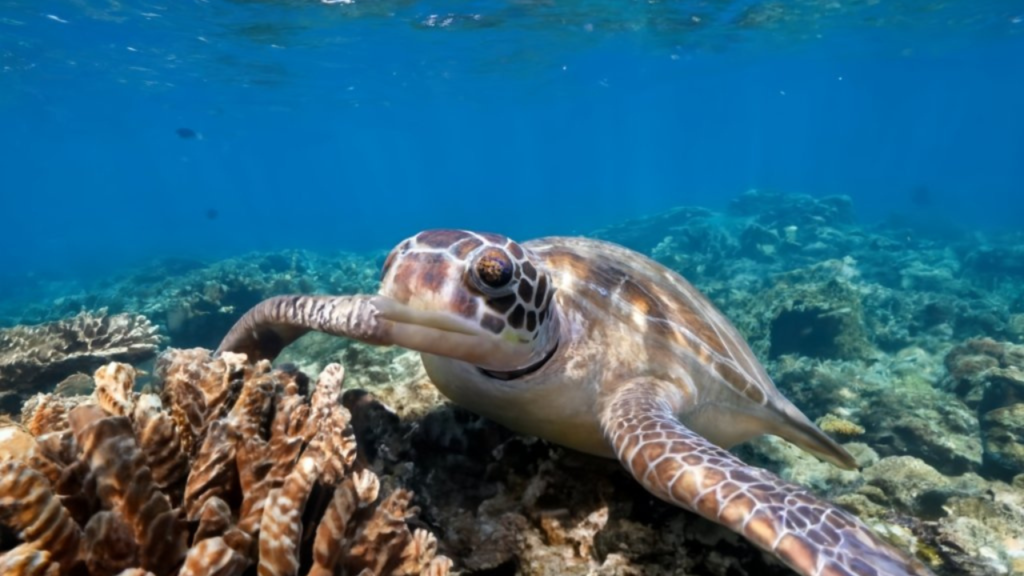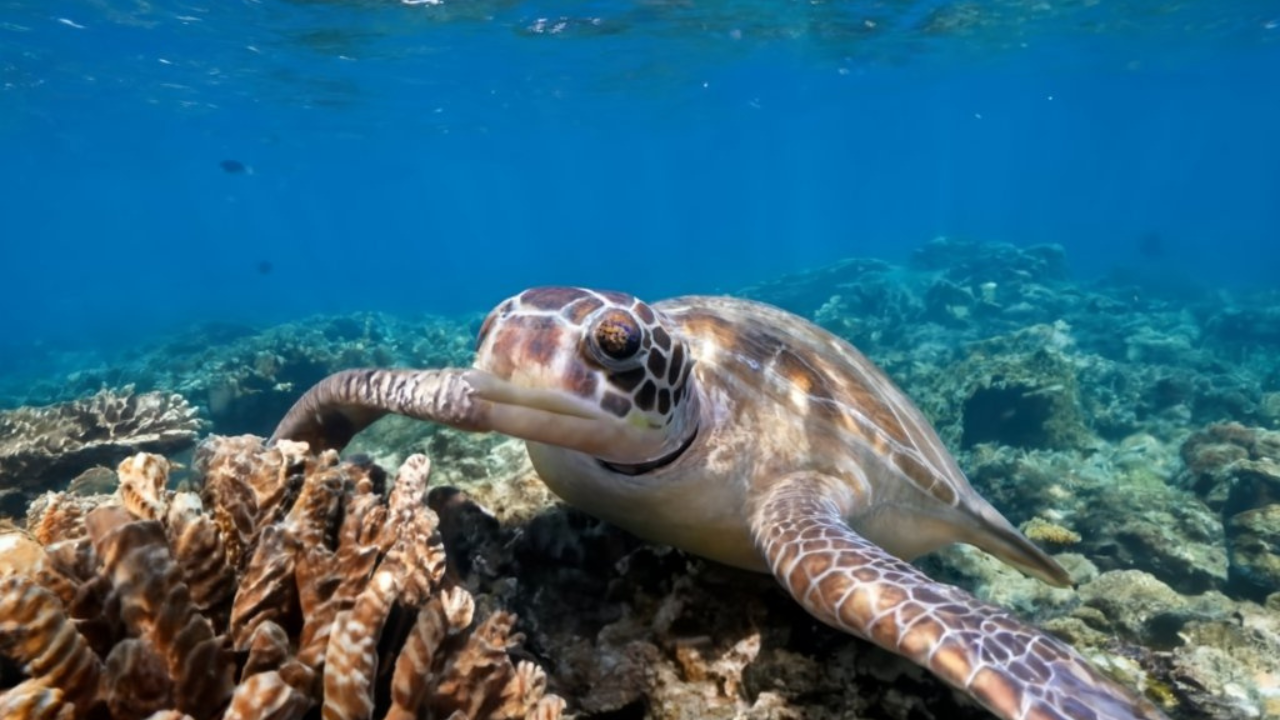Exploring the Depths: Ocean Conservation Tips
Our oceans, though vast, are home to a fragile ecosystem facing serious challenges. In this article, we’ll delve into the world of ocean conservation, emphasizing the need to protect these immense bodies of water. Let’s explore effective strategies for safeguarding marine life.
by TAUHID SHAH: January 12: Friday: 09:20 PM | 2024 Update

Table of Contents
Setting the Stage
A. The Crucial Role of Ocean Conservation
Our oceans play a pivotal role in maintaining planetary balance. They aren’t just repositories of biodiversity; they significantly contribute to climate regulation, impacting weather patterns and supporting life on land.
B. The Current State of Marine Ecosystems
Despite their crucial role, marine ecosystems are under threat from human activities like pollution, overfishing, and climate change. These factors contribute to ocean degradation, imperiling marine life and coastal communities.
II. Unraveling Ocean Conservation
A. Definition and Scope
Ocean conservation involves sustainable management and protection of marine resources, covering various activities aimed at preserving ocean health for future generations.
B. Pressing Issues Facing the Oceans
Numerous challenges, including plastic pollution, habitat destruction, and overexploitation of marine resources, pose significant threats. Understanding these challenges is crucial for forming effective conservation strategies.
III. The Role of Individuals
A. Everyday Contributions to Ocean Conservation
Individuals can contribute through simple yet impactful actions, such as reducing single-use plastic consumption, participating in beach clean-ups, and making sustainable choices in daily life.
B. Mitigating Plastic Threats
Plastic pollution stands as an immediate threat to marine life. Minimizing plastic usage and adopting proper waste disposal practices empower individuals to play a pivotal role in addressing this issue.
IV. Governmental Endeavors
A. International Collaborations for Marine Protection
Governments globally recognize the need for collaborative action to safeguard the oceans. International agreements and conventions aim to establish guidelines for sustainable fishing, pollution control, and marine conservation.
B. Local Policies and Their Influence
In addition to global initiatives, local policies, and regulations significantly contribute to ocean conservation. Implementation and enforcement of measures to limit coastal development and protect critical habitats are essential steps.
V. Technological Advancements
A. Progress in Ocean Monitoring Technologies
Technological innovations like satellite monitoring and underwater drones provide valuable data for understanding and addressing threats to marine ecosystems. These tools enable proactive responses to changes in ocean conditions.
B. Technologies Enhancing Marine Life Preservation
Advancements in marine conservation technologies, including artificial intelligence and remote sensing, amplify our ability to protect endangered species and monitor the health of marine environments.
VI. Impact on Biodiversity
A. The Delicate Balance of Marine Ecosystems
Biodiversity in the oceans is like an intricate web, with each species playing a unique role. Disruptions to this delicate balance can have far-reaching effects, impacting the entire marine food web.
B. The Domino Effect of Losing Species
The extinction of one species can set off a chain reaction, leading to the decline of others. Recognizing the interdependence of marine life is crucial for effective conservation efforts.
VII. Sustainable Fishing Practices
A. Responsible Fishing Methods
Adopting sustainable fishing practices, such as implementing catch limits and avoiding destructive fishing gear, is crucial for maintaining fish populations and preserving the health of marine ecosystems.
B. The Importance of Fisheries Management
Effective fisheries management ensures that fishing activities are conducted in a manner that doesn’t deplete fish stocks or harm other marine species. Collaboration between fishermen, scientists, and policymakers is key to achieving this goal.
VIII. Coral Reefs: The Ocean’s Lifeline
A. The Significance of Coral Reefs
Coral reefs are hotspots of biodiversity, supporting a myriad of marine species. However, they face threats such as coral bleaching and ocean acidification, underscoring the need for targeted conservation efforts.
B. Threats and Conservation Measures
Understanding specific threats to coral reefs, including rising sea temperatures and pollution, allows for effective conservation measures. These may include marine protected areas and coral restoration initiatives.
IX. Marine Reserves and Protected Areas
A. Establishing and Maintaining Protected Zones
Designating marine reserves and protected areas is crucial for safeguarding critical habitats. These zones provide a refuge for marine species, allowing populations to recover and thrive.
B. Success Stories in Marine Conservation
Highlighting success stories of marine reserves and protected areas showcases the positive impact of conservation efforts. These examples serve as inspiration and demonstrate the effectiveness of proactive measures.
X. The Role of NGOs
A. Non-Profit Organizations Dedicated to Ocean Conservation
Numerous non-profit organizations actively engage in ocean conservation initiatives. Their efforts range from community-based projects to large-scale campaigns aimed at raising awareness and advocating for policy changes.
B. Collaborative Efforts for a Sustainable Future
Collaboration between governments, NGOs, and local communities is crucial for achieving sustainable ocean conservation. By combining resources and expertise, these entities can address complex challenges and implement effective solutions.
XI. Challenges in Ocean Conservation
A. Addressing Climate Change Impacts
Climate change poses a significant challenge to ocean conservation. Rising sea temperatures, ocean acidification, and extreme weather events directly impact marine ecosystems, requiring urgent global action.
B. Overcoming Political and Economic Barriers
Political and economic considerations often hinder effective ocean conservation. Overcoming these barriers requires diplomatic efforts, policy advocacy, and a collective commitment to prioritize the health of our oceans.
XII. Education and Awareness
A. Importance of Educating the Public
Raising awareness about the importance of ocean conservation is key to garnering public support. Educational programs and campaigns help people understand their role in protecting the oceans and inspire positive action.
B. Engaging Communities in Ocean Protection
Community engagement fosters a sense of responsibility for local marine environments. Empowering communities to take ownership of conservation efforts leads to sustainable, long-term impact.
XIII. Global Collaboration
A. The Need for International Cooperation
Given the interconnected nature of the oceans, international collaboration is essential. Sharing knowledge, resources, and technology on a global scale enhances our ability to address overarching challenges.
B. Joint Efforts for a Healthier Planet
By joining forces, nations can implement comprehensive strategies for ocean conservation. From policy development to on-the-ground initiatives, global collaboration is vital for achieving a healthier and more resilient planet.
XIV. Success Stories
A. Notable Achievements in Ocean Conservation
Celebrating success stories highlights the positive outcomes of ocean conservation efforts. From revived marine ecosystems to the recovery of endangered species, these achievements inspire further action.
B. Concluding Positive Outcomes
Emphasizing the positive impact of conservation efforts reinforces the idea that collective action can make a difference. Acknowledging achievements motivates individuals and organizations to continue their commitment to ocean conservation.
XV. Conclusion
A. Recap of Key Points
Exploring the depths of ocean conservation unveils a multifaceted landscape of challenges and opportunities. From individual actions to global collaborations, each effort contributes to the collective goal of preserving our oceans.
B. The Call to Action for Readers
As stewards of the planet, it is our responsibility to actively participate in ocean conservation. Whether through lifestyle changes, support for local initiatives, or advocating for policy changes, every action counts in safeguarding the health and vitality of our oceans.
FAQs – Ocean Conservation Tips
Q: What can I do on a daily basis to contribute to ocean conservation?
A: Simple actions like reducing plastic usage, participating in beach clean-ups, and making sustainable choices in your daily life can have a positive impact.
Q: How do marine reserves benefit ocean conservation?
A: Marine reserves provide protected zones where marine life can thrive, aiding in the recovery of ecosystems and supporting biodiversity.
Q: Are there successful examples of marine conservation initiatives?
A: Yes, many success stories showcase the effectiveness of conservation efforts, from the recovery of endangered species to the rejuvenation of marine ecosystems.
Q: Why is global collaboration crucial for ocean conservation?
A: Oceans are interconnected, and global collaboration allows for the sharing of knowledge, resources, and technology to address overarching challenges.
Q: How can individuals contribute to the protection of coral reefs?
A: Supporting coral restoration initiatives, avoiding activities that harm coral reefs, and spreading awareness about their significance are ways individuals can contribute.




